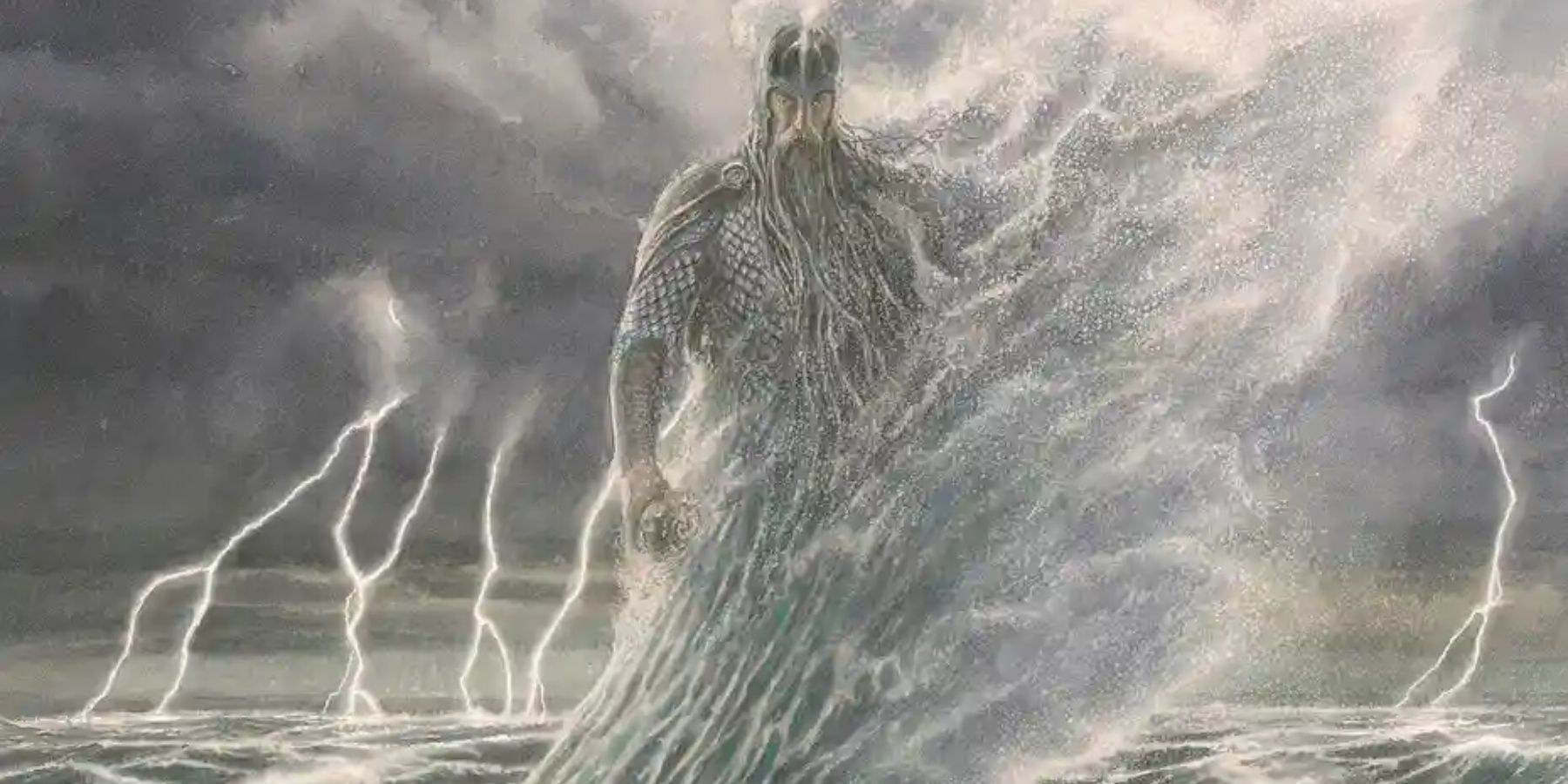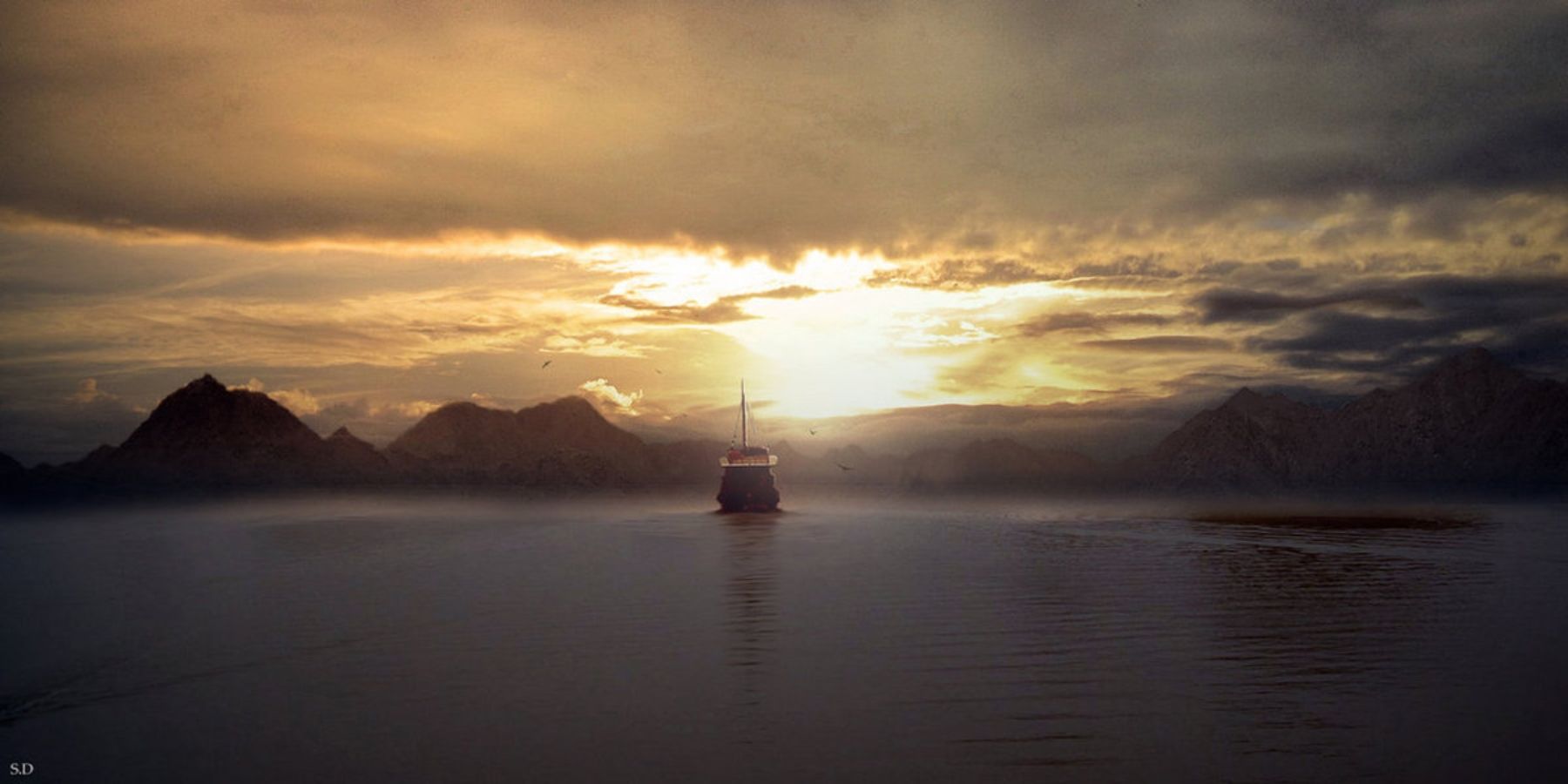There are many themes in the Lord of the Rings that speak about what it means to return home, whether that is to a place, like Bag End and his armchair is for Bilbo, or whether that is to a calling, like finally taking up the throne of Gondor and fulfilling his purpose like it is for Aragorn, or even if that means returning to the people that you have loved and missed, like getting back to Rosie Cotton is for Sam. But for the elves of Middle Earth, there is a sort of bitter-sweet sadness in their calling home, in the longing that they always have to journey across the waters to the Undying Lands.
In a lament at the end of Return of the King, Legolas describes “Grey ships, Grey ships, do you hear them calling? The voices of my people that have gone before me.” There is a sense of longing in the elves, who know that their time is ending, and that they must journey forth to Valinor, where so many of their loved ones have already parted, like Arwen’s mother. But for so many elves, like the forest elves in Mirkwood, or the elves who live in Lothlorien, enveloped in trees and Galadriel's silver light, they may never have even seen the sea, or looked out upon the swift sunrise over a vast horizon, so what gives them this innate desire to return to the water?
The answer goes right back, before the First Age of Middle Earth, to the creation story that Tolkien first conceived as a child, long before he conceptualized the Lord of the Rings or The Hobbit. When Eru Illuvatar first created beings, they sprung from his mind into existence, and he gave each of them the gift of music. Within this music lay the power of all creation, and as these new beings (who later became known as the Valar) sang, they brought into motions the deeps rivulets of the oceans, and the vast peaks of the mountains, forming Middle Earth as a safe haven for Illuvatar’s next creations, who were less spiritual, and far more dependent on the comforts and protections of a world where their earthly bodies could dwell: Elves and Men.
Interestingly, the dwarves were actually created first, although not by Illuvatar. But despite having all that they could need, the elves especially always had a certain restlessness, as if they weren’t quite content in Middle Earth, as if their souls longed for something else. Many fans believe that this is because they are always yearning to travel to the Undying Lands, where they can find peace away from the darkness and the suffering of the world, brought on by the troubled beings like Melkor and later Sauron.
According to The Silmarillion, this need for the sea may actually be written into their genetic make-up, from the very composition of their beings. Back in the time when Illuvatar and his Valar first sang the world into being, the elves and the men were also invited by this music, and even after several Ages of Middle Earth have passed, they can still hear its calling. The being in particular who created the oceans of the world was Ulmo, and he is said to ‘speak to those who dwell in Middle Earth with voices that are heard only as the music of water. For all seas, lakes, rivers, fountains, and springs are in his government, so that the Elves say that the spirit of Ulmo runs in all the veins of the world.’ In this sense, his voice is still held in the deep waters of the world, and it brings the elves (who are known to be able to see beyond, and perhaps even hear beyond) closer to Illuvatar, their creator, and the origins of all life that they hold dear.
Of the original beings, Ulmo was one of the more accepting of the Elves and Men, he didn’t see rivalry and jealousy within them as Melkor did, but he also didn’t see them as beings that he couldn’t bear to be parted from, and desired nothing more than to walk among. He was able to remain separate from them, but still to watch over them from afar, enjoying their learning and their living. ‘Ulmo loves both elves and men, and never abandoned them, not even when they lay under the wrath of the Valar. At times he will come unseen to the shores of Middle Earth, or pass far in-land up firths of the sea, and there make music upon his great horns, the Ulumuri, that are wrought of white shell; and those to whom that music comes hear it ever after, in their hearts, and longing for the sea never leaves them again.’






